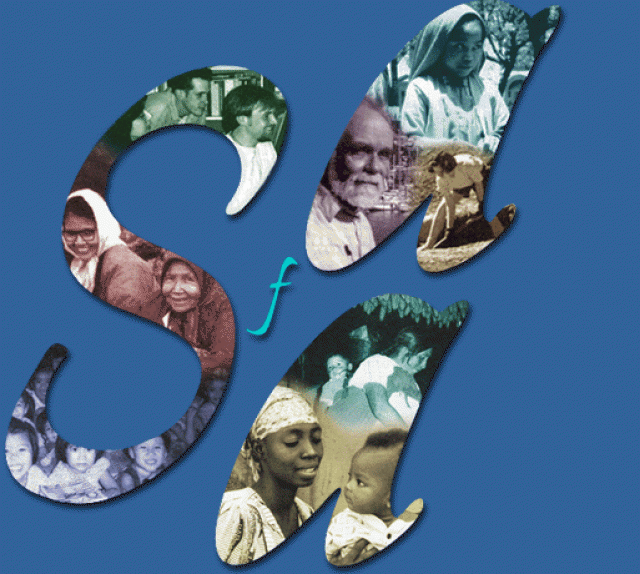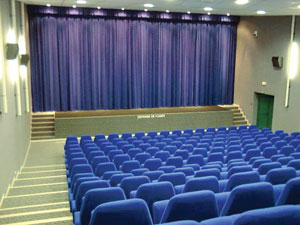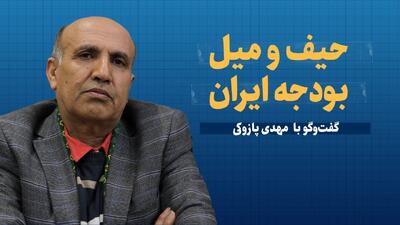Mission
The Society has for its object the promotion of interdisciplinary scientific investigation of the principles controlling the relations of human beings to one another, and the encouragement of the wide application of these principles to practical problems, and shall be known as The Society for Applied Anthropology .
Purpose and Vision
The Society for Applied Anthropology aspires to promote the integration of anthropological perspectives and methods in solving human problems throughout the world; to advocate for fair and just public policy based upon sound research; to promote public recognition of anthropology as a profession; and to support the continuing professionalization of the field. The Society pursues its mission and purpose by (1) communicating theories, research methods, results, and case examples through its publications and annual meetings; (2) recommending curriculum for the education of applied anthropologists and other applied social scientists at all levels; (3) promoting and conducting professional development programs; and (4) expressing its members' interests-- and anthropological approaches in general--to the public, government agencies, and other professional associations. Through these activities, the Society strives to be a premier professional organization for anthropologists and other applied social scientists and with colleagues throughout the world.
Strategic Values and Directions
Over half a century ago, the founders of the Society for Applied Anthropology selected its name to signify the application of the principles, theories, methods and approaches of anthropology to the interdisciplinary identification and solution of human problems. Anthropologists demonstrate a particular capability in helping to solve human problems through building partnerships in research and problem solving; acknowledging the perspectives of all people involved; focusing on challenges and opportunities presented by biological variability, cultural diversity, ethnicity, gender, poverty and class; and addressing imbalances in resources, rights, and power. Such contributions are most effective in interdisciplinary settings where active and committed social scientists work in partnership with active and committed representatives of community, national, and international constituencies.
Influence on Policy
In order to affect policy at all levels, the Society must promote anthropological interests, tools, methods and insights with a very broad array of policy makers. Legislators, lobbyists, funders, government agencies, international organizations, nonprofit organizations, community-based leaders are only a handful of actors in the policy arena with whom applied anthropology must interact. Through effective use of the media, press relations, conferences, products and other forms of dissemination, the Society should promote anthropology to the public and should facilitate training programs for members to work effectively with the press. Increasingly, the Society will use resources such as the Internet and SfAA Online Community to stimulate timely discussions of current policy related issues. By encouraging and supporting anthropologists to take leadership and decision making positions in public policy, the Society can influence policy decisions at all levels. The careful selection of the theme for the annual meeting is an important way to direct members' efforts to special issues.
Employment Opportunities
For the past two decades the majority of anthropologists have found employment outside of university settings. This is especially the case when anthropologists with the M.A. degree are taken into account. With the trends in electronic multimedia education and the decrease in tenured academic positions, an even larger percentage of both Ph.D. and M.A. educated anthropologists will be employed outside of academic positions in the upcoming decade. The Society must inspire academic and non-academically employed anthropologists to recognize the benefits in identifying themselves as "Professional Anthropologists." It can accomplish this by providing opportunities for sharing approaches, for testing and sharing new methods, and for disseminating these approaches to communities, institutions, and other professions.
Support of Professional Roles
The occupation of "Anthropologist" should be promoted as a satisfying, rewarding and important professional role whether as an independent consultant, an employee of public agencies, corporations, nonprofit organizations, or as a university faculty member or administrator. Successful professional roles and identities must be identified, promoted and strengthened. Exceptional role models and outstanding contributions are formally recognized through the Society's awards, such as the Malinowski Award, the Margaret Mead Award, and the Peter K. New Award, and through leadership opportunities offered by the society and its programs.
Partnerships
The Society must continue to form partnerships and collaborative agreements with Local Practitioner Organizations (LPOs), and organizations that employ anthropologists, especially organizations founded by and managed by anthropologists. The successes of these social support systems are vital to the employment and quality of life of its members. Educating potential employers about the skills anthropologists can offer is essential. In particular, we need to pursue the inclusion of "anthropologist" as an occupational title in employment classifications, associated with specific skill levels and qualifications.
New Recruits
Anthropology in the academy legitimizes the field in the eyes of the public, and it permits the identification, recruitment, training and promotion of new recruits. As entry points for socialization of new members into the profession, Universities support basic research, theory development, and cross-fertilization with other disciplines. With anthropology's historically close and interactive relationship between theoretical development and field work, new applied anthropologists must be trained to conduct work guided by theory, while at the same time to generate and test theories. As applied professionals, they must be able to contribute to building our understanding of culturally related behaviors on a broad comparative basis.
Broad-based Education and Training
This broad perspective draws upon an understanding of the linguistic, archeological, historical, biological, psychological, ecological, economic, technological, social and cultural dimensions of the human condition. For the future success of new members, the Society must continue to recommend the development, refinement, and integration of a curriculum necessary for an academic department to offer an "applied" track of study.
Publications
Publications are important vehicles for building the foundation of knowledge, reporting on solutions to human problems, and addressing significant policy issues. Authors communicate to a nonmember the utility of our perspectives and to students who are possibly forming a commitment to applied social science. Publications provide a historical record of the field's development and accomplishments. We must continually search for alternative ways to communicate with our peers and the wider communities. The Society must continue to publish the highest quality journals, handbooks, guides, manuals, and educational videos in formats designed to appeal to interdisciplinary professionals. Human Organization must remain a leading refereed journal in the social sciences, and Practicing Anthropology must continue as the principal publication for practitioners. The SfAA Newsletter is an important mechanism for building support networks through communicating issues of interest to the Society, its committees, Topical Interest Groups, (TIGS), and members.
International Commitments
Our origins and history reflect clearly our strong international perspectives and commitments. Anthropology can be promoted by fostering and supporting the development of other professional anthropological associations around the world. By scheduling annual meetings in international locations, these occasions can be used to strategically build interregional exchanges, collaborative research, and regional networks of applied social scientists. By increasing international membership, more programs and activities can be developed that remain independent of the economic and cultural policies of any one particular country.
Interdisciplinary Perspectives
It is critical that anthropological approaches to the solution of human problems are applied in conjunction with the point of view and expertise of colleagues from other disciplines. By its very nature the Society is interdisciplinary, even though it carries the word "Anthropology" in its name. The Society's members encompass the social sciences and other disciplines concerned with the application of scholarship to address practical problems in the world.
An Egalitarian Culture
The Society promotes a non-hierarchical approach that allows many people to participate in important organizational and intellectual leadership positions. The vision of the Society emphasizes the inclusion of all its constituents in its activities and operations. With the continued growth of membership, a challenge is to continue the annual meeting's informal and friendly atmosphere. Efforts must be made to facilitate small group interests, and to strategically focus members' efforts on priority issues. Recruitment of people into leadership positions within the organization should represent the diversity of its membership. Student representation, input, and services should become integral foci of the Society's work. Editorial boards of publications, annual meeting committee and advisory committees must represent the full diversity of the membership.
Management
Continuing into the future the management of the Society by the Executive Committee, Business Office, and committees will be a model of strategic management, operational efficiency and fiscal integrity. It will be recognized for its effective and appropriate use of electronic technology to communicate among the members, to distribute information and policy statements, and to efficiently conduct business functions.
Major Goals
It is with this mission, purpose, and vision, that the following nine major goals direct the Society's long-range planning activities:
1. To improve the capacity of the Society to respond to policy issues identified by the membership as particularly important.
2. To enhance the reputation of the Society's publications as leading repositories of applied knowledge, skills, and methods.
3. To advance anthropological perspectives through public outreach and effective media coverage.
4. To promote and expand services to various member constituencies, especially students at all levels and M.A. and Ph.D.-level professionals working outside of academia.
5. To expand the readership of the Society's printed and electronic publications.
6. To strengthen its international constituency and endeavors.
7. To increase the diversity of people encompassed within its activities, especially regarding the representation of ethnically under-represented groups.
8. To support and expand interdisciplinary networks, membership, and perspectives.
9. To advance the Society's capacity to serve its members, committees, and the discipline through contract, grants, and cooperative agreements with organizations committed to enhancing the quality of life in local communities.
October 1999, Revised by Linda Bennett, President, Dennis Wiedman, Treasurer, and Linda Whiteford, SfAA Board of Directors Member. This long-range planning document is an evolving prospectus. Substantive comments and editorial suggestions for further revisions are invited.













































































